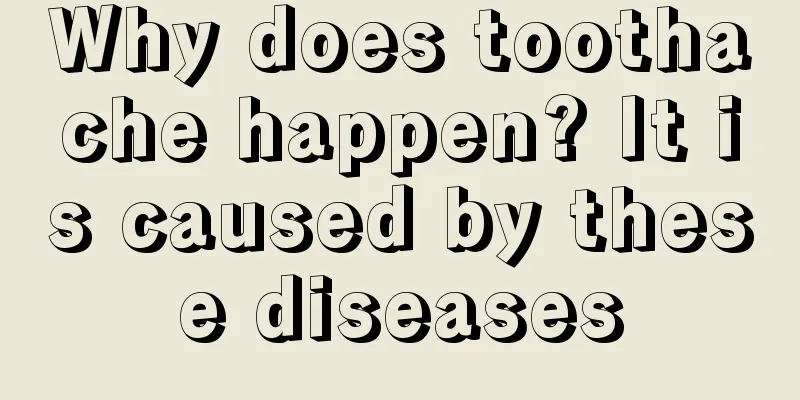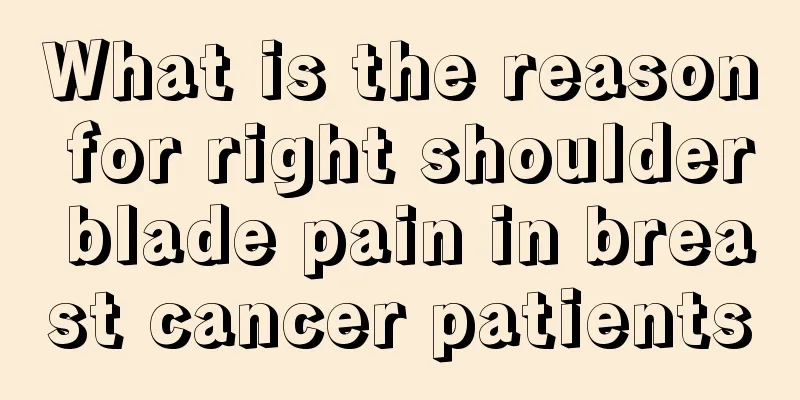Why does toothache happen? It is caused by these diseases

|
Toothache is not a disease, but it is really painful when it happens. I believe many people have had this experience. In fact, toothache is not caused by any problems with the teeth, but by certain oral diseases, such as caries, pulpitis, apical periodontitis, dental trauma, pericoronitis of wisdom teeth, etc. 1. Dental caries: Initial dental caries usually have no symptoms. When the dental cavities become larger and deeper, toothache may occur when eating. The pain will be aggravated when eating sweets or overcold or overheated foods. At this time, you can first use acid-proof and analgesic toothpaste, brush your teeth with warm water, and use folk remedies to relieve pain when necessary, but the most effective treatment method should be to fill the cavities. 2. Pulpitis: It is mostly caused by pulp infection due to deep caries without filling, or caused by chemical drugs or temperature stimulation. The pain is spontaneous and paroxysmal, and may be accompanied by cold, hot stimulation pain and percussion pain. For emergency treatment of this type of toothache, you can take 300 mg of ibuprofen orally, twice a day, to relieve the pain, or use folk remedies to relieve the pain. The radical cure is to use a dental anvil to open the pulp cavity for endodontic treatment under local anesthesia. 3. Apical periodontitis: It usually spreads from pulpitis to the root canal orifice, causing inflammation of the tissues around the apex. Symptoms include persistent tooth pain. The affected tooth has a sense of elongation, and is obviously painful to touch and tenderness, and cannot bite food. At this time, you can take anti-inflammatory and analgesic drugs, such as 0.5 grams of vancomycin No. 4, 3 times a day; 0.4 grams of metronidazole, 3 times a day, 25 mg of indomethacin, 3 times a day; and eat soft food. You can also use folk remedies for emergency pain relief. Root canal treatment should be performed after the inflammation subsides. 4. Dental trauma: such as accidental falls, bumps, or sand biting while eating, which may cause tooth fracture or cracking, causing tooth pain. You can take anti-inflammatory and analgesic drugs first, or you can use folk remedies to relieve pain. Those who have the conditions should go to the dental department for treatment. 5. Pericoronitis of wisdom teeth: Difficulty in erupting wisdom teeth (impacted), coupled with poor oral hygiene, causes inflammation, swelling and pain in the tissues around the crown. You can rinse your mouth with gargles such as Koutai or Koushu, take anti-inflammatory and analgesic drugs, or use folk remedies to relieve pain. Remove the impacted tooth after the inflammation has subsided. In addition, influenza, trigeminal neuralgia, jaw cysts or tumors, high blood pressure, and heart disease can sometimes cause toothache. Therefore, for those who complain of toothache but have no tooth lesions, do not blindly abuse painkillers. Instead, go to the hospital for specialist diagnosis and treatment in time. |
<<: Scraping and cupping make your body healthier
>>: Can patients with frozen shoulder exercise?
Recommend
Is it possible to ovulate right after menstruation?
Some young people hope to have a healthy baby qui...
How should lung cancer patients regulate their diet? Lung cancer patients try 5 dietary treatments
Lung cancer is a very common cancer, and it is a ...
What are the methods for preserving tea
Drinking tea has a very good effect on lowering t...
Women should never sleep with this thing between their legs
Sleeping is the most important thing in life. Goo...
If you drool while sleeping, you need to get checked! Maybe it's a sign of a serious illness
Drooling while sleeping looks ugly and is embarra...
What to do if you put too much alkali in the dough
Yeasted noodles are a very common noodle product ...
How long is the shelf life of dried persimmon
The production of persimmon cake is actually to d...
Can probiotics cure constipation?
Many people know about probiotics, which are acid...
The efficacy and function of golden obsidian
In fact, in our lives, many minerals are of great...
Prevention of breast cancer should vary from person to person
Breast cancer is a disease that is seriously harm...
Is the chance of recurrence of advanced gastric cancer high? The truth is this
Is there a high chance of recurrence after gastri...
What foods should be avoided for testicular cancer
Testicular cancer patients have overcome numerous...
Is shingles contagious?
Speaking of shingles, even if you have never had ...
Changes in breast appearance in breast cancer patients
The incidence of breast cancer accounts for 7-10%...
The harm of water bed to the body
With the gradual improvement of living standards,...









